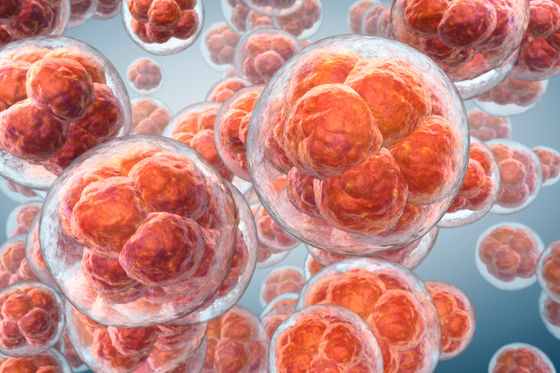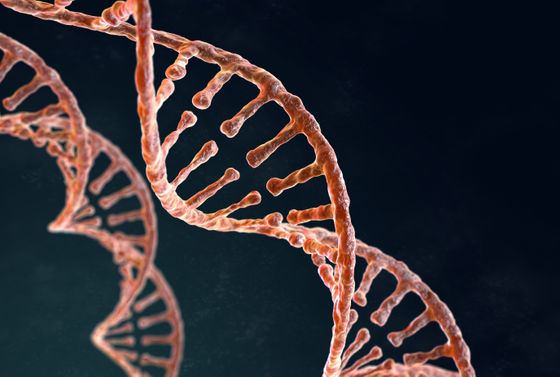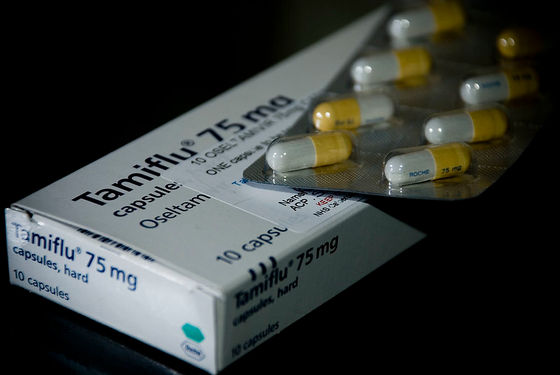Experts explain easily why 'antibiotics do not work against viruses'

Penicillin, which can be said to be a representative of antibiotics, has been one of the 'great discoveries in the 20th century' because it has saved countless people's lives from bacterial infections since it was put into practical use as a medicine in 1942. I will. However, such antibiotics are useless before the virus. Microbiology specialists explain 'Why viruses do not work with antibiotics?'
Why are there so many drugs to kill bacteria, but so few to tackle viruses?
https://theconversation.com/why-are-there-so-many-drugs-to-kill-bacteria-but-so-few-to-tackle-viruses-137480
'Even after the epidemic of the new coronavirus, many researchers and pharmaceutical companies have been working hard to develop antiviral drugs. What makes it difficult to discover antiviral drugs is The answer lies in biology, ”points out Christine Carson, a biomedical scientist at the University of Western Australia, and Rachel Lauper, an associate professor of microbiology and immunology at the University of East Carolina. .. According to them, it is difficult to control the virus, because the characteristic of the virus 'using human cells to increase the number' is deeply related.
To find out why antibiotics, other than some resistant strains , that have remarkable effects do not act on the virus, we first need to know the difference between bacteria and viruses.

Bacteria are in some ways similar to human cells because they are independent cells, but there are differences. For example, many eubacteria such as Escherichia coli have a cell membrane made of a high molecular compound called
On the other hand, the virus penetrates into the cells of the host organism, takes over the growth function, and grows in the cells. Then, when the cells become full of virus, the cells burst and the virus particles are scattered. Viruses are often said to be 'not exactly living', mainly because they cannot self-propagate without the cells of other living beings.
In order to suppress the growth of the virus, it is basically necessary to target the mechanism that the cells of the human body self-replicate, so unlike antibiotics with selective toxicity, antiviral drugs may be toxic to the human body as well. Will be higher. Carson et al. Explained the difficulty of developing antiviral drugs, 'Actually, it is easy to control the virus. The difficulty is to keep the host alive.'
Due to the nature of the virus, which utilizes the cell's replication process, antiviral drugs must target 'structures and processes unique to the virus,' but most viruses do not. I don't have it.
In addition, bacteria all have double-stranded DNA, whereas viruses have DNA and RNA, and there are double-stranded and single-stranded genomes. So, 'it's virtually impossible to make an antiviral drug that works against a wide range of viruses,' Carson and colleagues said.

Although it is difficult to develop effective antiviral drugs, there are examples of development that are based on a slight difference in the replication process between virus and host cells. For example,
Also, oseltamivir , which is famous under the trade name of Tamiflu, and zanamivir , which is sold under the trade name Relenza, inhibit the enzyme neuraminidase, which is required when the influenza virus that proliferates inside the cell goes out of the cell. / Minimizes the growth of influenza B virus.

by Richard Sunderland
Carson et al. 'In order to develop effective antiviral drugs against the new coronavirus, it is important to know the interaction between human cells and the complex process of virus growth. Once we can identify the unique properties of the new coronavirus. , We will be able to make effective antiviral drugs with that weakness. '
Related Posts:
in Science, Posted by log1l_ks







